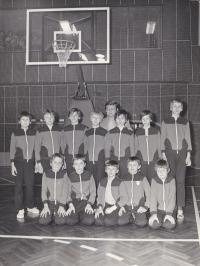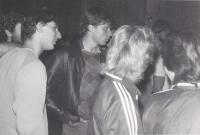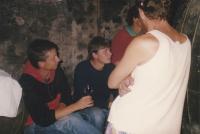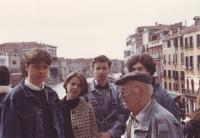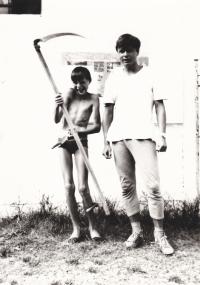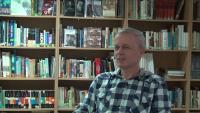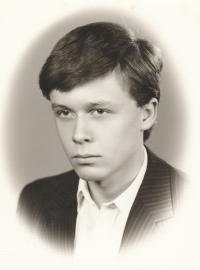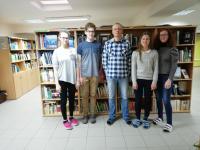Stating one’s opinion or the truth under Communism? There was the occasional slip of the tongue

Download image
Daniel Kříž was born on 14 August 1967 in Příbram. As a child he believed the propaganda, which was confirmed by his school education and blared at him from all sides and all mass media. It seemed more logical to him than the anti-regime opinions held and taught to him by his father. But he came to see the truth in his parents’ stance at grammar school. He graduated in 1985. He worked for a year and then enrolled at the Faculty of Education of Charles University. He studied Czech and French. He participated in the demonstrations of Palach Week, during which one of his university friends was arrested and promptly expelled from school. In summer 1989 he visited Gdańsk and saw with his own eyes the wondrous political transformation that gave him new energy and hope of change in his homeland as well. On Friday 17 November he joined the protest march from Albertov to Vyšehrad and all the way to National Avenue, where he remained until the crowd was violently dispersed by the police. He was fortunate not to have suffered any serious injury. In the following week of strikes he joined one of the many forming groups of three - a student who had participated in the demonstration on National Avenue, another student, and a well-known person, usually an actor or actress - who were to inform truthfully of the events outside of Prague. Together with a friend and the actress Naďa Konvalinková they spoke to various groups, including miners from Háje mine shaft near Příbram. They were chased out of the Orion chocolate factory in Modřany by armed security staff. After completing his studies he worked at Rainbow Home, where he helped people with mental handicaps assimilate into society. He taught at several schools in Prague. In 1995 he returned to Příbram and was employed as a teacher at Holy Mountain Grammar School; he has taught at Legionaries Grammar School since 2005.
